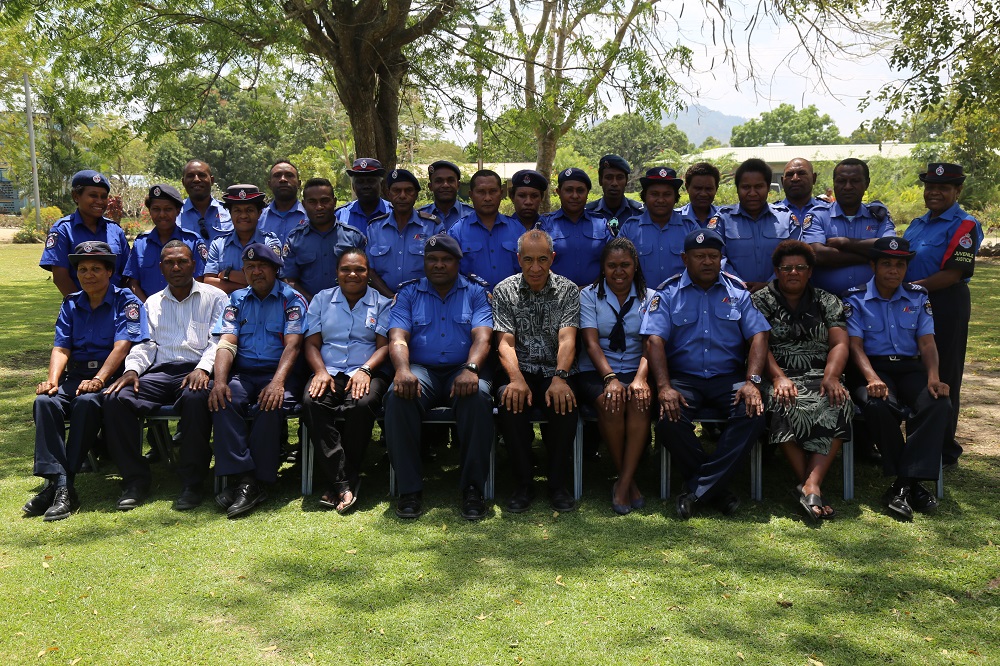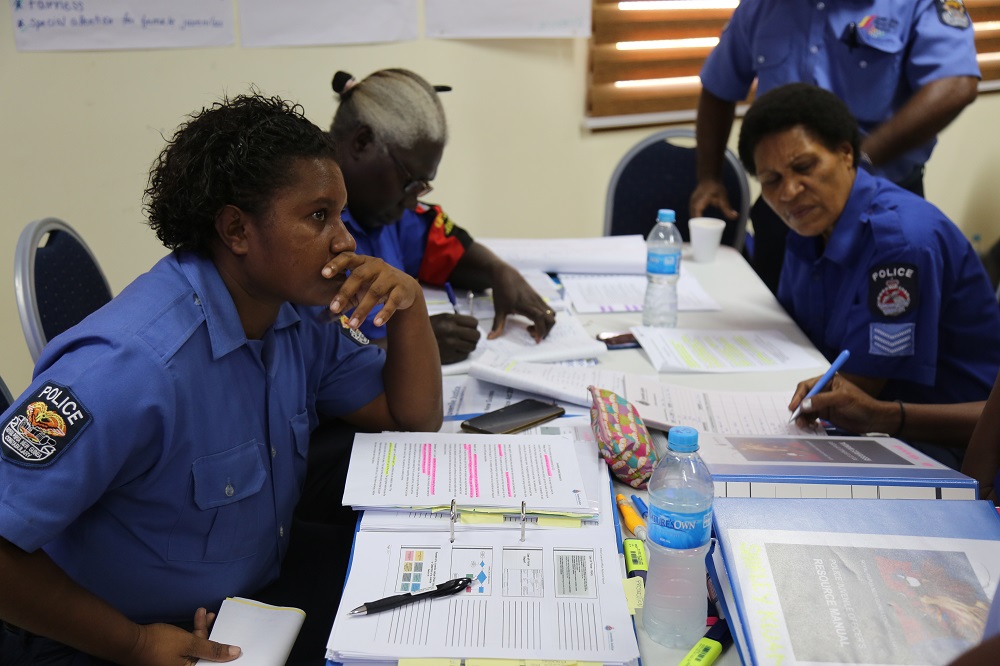The prospect of police officers, parents and communities working together to help young offenders change their behaviour and avoid slipping into a life of crime has RPNGC Senior Constable Leonnie Bartley excited.
The experienced juvenile justice officer based in Lae has seen first hand how children who come into conflict with the law can, with the right support and opportunities, turn their life around and she is keen to see more being given a second chance.
“Sometimes it is very hard for a child to think about the possibilities, especially when he comes from a background that is violent,” Senior Constable Bartley, Officer in Charge of the Juvenile Justice Reception Centre at Lae Police Station, says.
“But if he is given the time to change, he may do that.”
Senior Constable Bartley was among 23 officers who attended the RPNGC’s inaugural Police Juvenile Officer Introductory Course supported by the PNG-Australia Partnership for officers interested in specialising in juvenile justice.
Demand for juvenile justice expertise within the ranks of the police is expected to increase significantly as the RPNGC develops and implements a program to divert large numbers of young offenders away from the criminal justice system.
International evidence shows that young people in diversion programs are at significantly lower risk of reoffending than those exposed to the criminal justice system.
Under the program, police, parents, victims and communities will share decision-making power and collaborate on ways to deal with young people who come into conflict with the law.
Senior Constable Bartley has seen firsthand how lives can be changed and recalls how a boy in her care, convicted of wilful murder, continued his education while in custody and eventually graduated from Grade 12 and is now enrolled at the PNG Maritime College in Lae.
“[Police] can go through some good ways to help by referring [young offenders] to other agencies who can give service,” she says.
“You can see that it will change the mindset of the child. Not quickly but slowly, he will realise that ‘I have been given a second chance, to be a good person’, and to go back to school and start education again.”
Deputy Commissioner of Police Joanne Clarkson says police have a uniquely powerful position that brings with it great responsibility.
“Juveniles are in a fragile stage of life when they come into contact with the justice system,” Ms Clarkson says.
“We have a duty of care to them. We are in a position to give direction and reshape their way of thinking.”
For further information, including access to related materials, please contact the Australian High Commission media team: +675 7090 0100

Participants of the RPNGC Police Juvenile Officer Introductory course

Police officers discuss processes to handle young offenders at the inaugural RPNGC Police Juvenile Officer Introductory Course.
